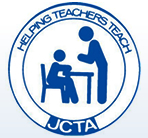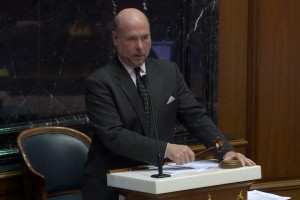Ref Rodriguez: LOCAL LAUSD BOARDMEMBER FOCUSED ON MIDDLE SCHOOLS
by Sheila Lane, Los Feliz Ledger Contributing Writer | http://bit.ly/1Opf58z

December 30, 2015 :: Ref Rodriguez, the newly elected Los Angeles Unified School District (LAUSD) School Board Member for District 5, faced what he called “a sort of surreal” day on December 15th when all schools in the LAUSD were closed due to a perceived terrorist threat that was later revealed to be a hoax.
“Ultimately, I felt that it was handled really well,” said Rodriguez. “If we had done nothing and [the threat was acted upon,] parents would have been thinking, ‘What were you doing playing with our kids’ lives?’”
Rodriguez acknowledged that there were problems in alerting parents and teachers in a timely manner, but that the LAUSD is working to improve that process.
On more typical days, Rodriguez has been working with the schools in his district that includes Silver Lake and Los Feliz to the northeast, and to the southeast, Vernon and South Gate.
“Because the needs and the communities and context are so different, we approach [these areas] in different ways,” Rodriguez said.
In the southeast—which Rodriguez is less familiar with than the northeast where he lives—Rodriguez’s team is working to better understand the area and “to help people determine what are the best approaches to do great work.”
In the northeast, it’s more about helping to facilitate programs and ideas already working well and supporting new ones, he said.
As an example, Rodriguez pointed to Silver Lake where some parents are considering starting a middle school.
“I love the fact that we have a parent initiative that the district is supporting,” he said, “rather than a district initiative that we’re trying to get parents to support.”
A native Angeleno who, in 1999, partnered with another educator to open the first public charter middle school in Los Angeles, Rodriguez went on to create 15 more charter schools under the “Partnerships to Uplift Communities” banner.
Elected to the school board last May, Rodriguez—who beat incumbent Bennett Kayser—has been targeted by critics who say that he is too beholden to the charter school movement to be impartial on the issue.
Rodriguez says that is not the case.
“I look at schools,” he said, “through the lens of, ‘[Which] are the schools that are doing the most innovative things and getting results?’”
Rodriguez said that he believes charter schools—which are publically funded and accountable to the district, but are managed independently—can be a great vehicle for the overall district to learn innovative educational and management approaches, but that there are too many charter schools that do not live up to that promise.
Conversely, Rodriguez said, he has seen some outstanding models within the traditional LAUSD system.
“What’s interesting to me is that in places where you have parents and teachers who feel empowered in L.A. Unified,” he said, “they are doing some of the most innovative things that4LAKids - some of the news that doesn't fit: Ref Rodriguez: LOCAL LAUSD BOARDMEMBER FOCUSED ON MIDDLE SCHOOLS:





















